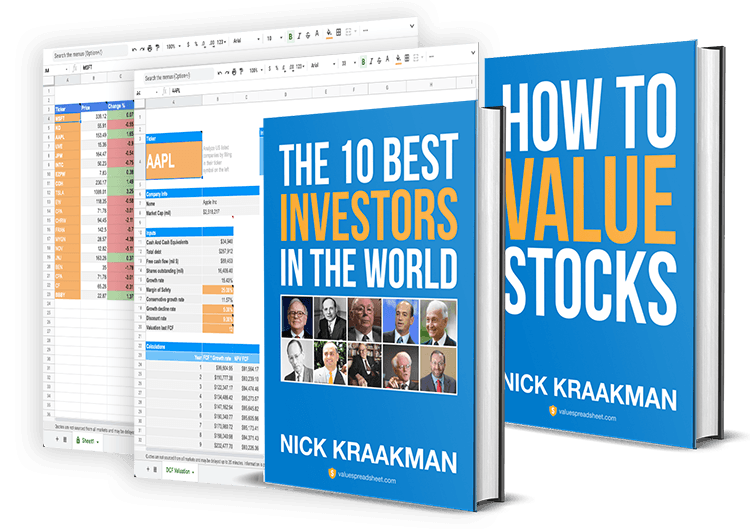
Several of my readers, among which Bala and Brian, have asked me to elaborate on the topic of bonds. There seems to be some confusion as to what percentage of your portfolio should be in stocks and what percentage in bonds. Or can you leave out bonds altogether? That's what we'll explore in this article!
For those of you who have never heard of bonds before or need a little refresher, you can check out my very short introduction to bonds in the following video:
In short, buying a stock makes you part owner of a business and all of its future earnings, while buying bonds makes you part owner of a company's debt in return for a fixed interest rate.
Stocks vs Bonds
Stocks are considered more risky than bonds, which is why many investment "experts" urge you to invest a part of your portfolio in bonds to minimize downside losses. Believers of classical market theories, like the Efficient Market Hypothesis (EMH), say that more risk equals higher rewards.
If we look at the historical returns of stocks versus bonds over the period between 1928 and 2014, we see that stocks sported a healthy 11.53% average annual return, while bonds returned just 5.28% a year over the same period. This is exactly what the EMH suggested!
We can see that stock returns fluctuate wildly, with huge increases in one year followed by disastrous decreases in price the year after. Using this logic, it makes sense to create a balanced portfolio of stocks and bonds. The higher the percentage of bonds, the lower your returns, but the less risky your overall portfolio becomes. Or at least, the less fluctuation your portfolio will experience…
The Value Perspective
In a previous article I wrote on the topic of diversification, I explain that price fluctuations do not equal risk, but are in fact the result of irrational emotional behavior and actually offer value investors the opportunity to buy at distressed prices and sell when investors become overly optimistic.
So short term price movements are in fact a blessing in disguise. For the long-term investor all that really counts are the long-term returns, and based on the historical data, stocks are the clear winner in the long run! Because stocks offer the greatest returns, I do not have any bonds in my portfolio, but are 100% in stocks.
But Warren Buffett owns/has owned bonds, right? True, but he only invests in bonds to temporarily "park" his money if there is no great company selling at a discount price at that particular moment in time.
Conclusion
Buying bonds to reduce the risk of your portfolio is based on false assumptions. All that this will achieve are lower portfolio returns and the illusion of a "smoother ride". I suggest to stick with Buffett's approach, and only buy bonds to keep your money from losing value while you wait for the next great bargain stock to present itself to you!



